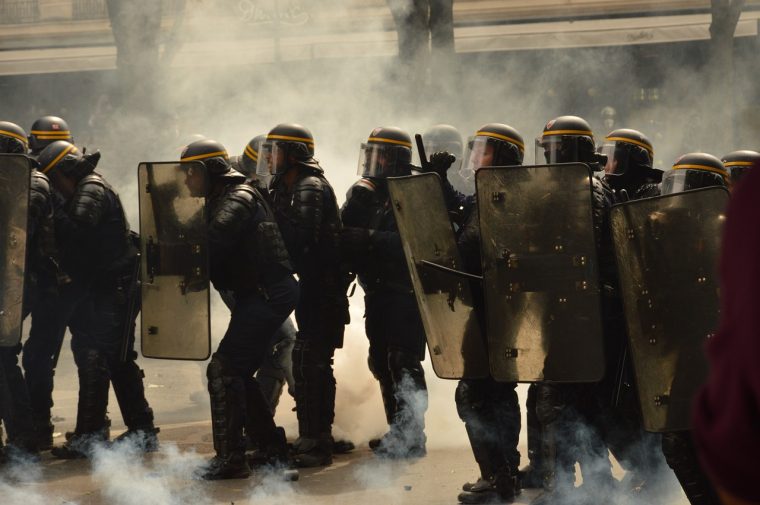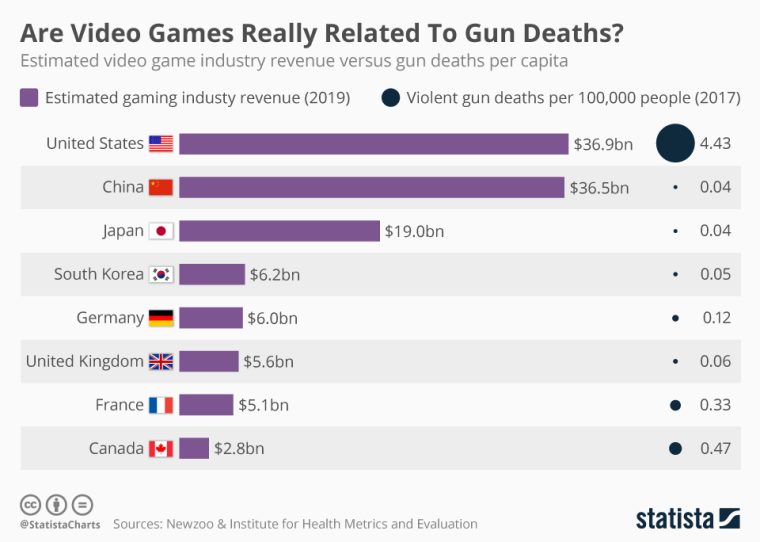
French President Emmanuel Macron has placed blame on social media and video games for the recent widespread riots in the country following the police shooting of a 17-year-old driver.
Macron has accused platforms such as TikTok and Snapchat of playing a significant role in encouraging acts of violence, while also criticizing video games for their contribution to the riots, according to a report from the Associated Press.
The French president also announced plans to work with social media sites to remove sensitive content and identify users who “call for disorder or exacerbate the violence.”
The riots erupted in France after the fatal police shooting of a 17-year-old driver, Nahel, who was of North African descent.
The incident sparked long-simmering tensions between police and young people in the country, leading to widespread protests and acts of violence.
On Friday, French Interior Minister Gerald Darmanin revealed that 917 arrests were made in a single day, and over 300 police officers have been injured during attempts to control the riots.
Macron has pointed fingers at social media platforms, alleging that they have enabled the spread of violence and copycat acts. He also blamed video games, adding another layer to the ongoing debate surrounding the impact of video games on violence.
As riots continue, Macron would prefer you didn't see the looting in Marseille today…
Macron wants social media heavily censored. pic.twitter.com/COuPQobpYX
— Frantruth (@frantruth) June 30, 2023
The French President stressed the need for a “spirit of responsibility” from the platforms, without explicitly defining the nature of the sensitive content he aims to combat.
French Authorities Threaten to Take Legal Actions Against Social Media Platforms
Darmanin said that French authorities have warned social media companies against allowing themselves to be used as tools for inciting violence.
“They were very cooperative,” he said. “We’ll see tonight if they really are.”
Darmanin added that the government will provide social media companies with “as much information as possible” so that, in return, they get the identities of people who incite violence.
He claimed that authorities will “pursue every person who uses these social networks to commit violent acts,” adding that the country will take “all necessary measures if we become aware that social networks, whoever they are, don’t respect the law.”
Existing French legislation criminalizes online threats, cyber harassment, and insults.
However, enforcement and prosecution of such offenses have been relatively rare.
A 2020 bill enabled platforms and search engines to remove prohibited content within 24 hours, but its effectiveness remains to be seen.
Macron blames social media and video games “intoxicating” the youth and fueling the riots.
The French President is demanding that social media companies take down videos and photos of the ongoing riots.
As France burned for the third night, Macron went to an Elton John concert. pic.twitter.com/tmyr2ulz4P
— Ian Miles Cheong (@stillgray) June 30, 2023
Snapchat, one of the platforms singled out by Macron, has responded by increasing moderation efforts related to the riots in France.
“Violence has devastating consequences and we have zero tolerance for content that promotes or incites hatred or violent behavior on any part of Snapchat,” the spokesperson for Snapchat said, adding:
“We proactively moderate this type of content and when we find it, we remove it and take appropriate action. We do allow content that is factually reporting on the situation.”
However, other platforms, including TikTok and Meta, the parent company of Facebook and Instagram, have yet to comment on the matter.
Social Media Platforms Censor Posts Based on Government Requests
Social media platforms often police individuals calling for violence due to their own policies. At the same time, they also comply with local laws and government requests to remove certain content, a practice that can be controversial.
For example, Twitter censored speech in compliance with the Turkish government’s request leading up to the country’s presidential elections.
Last month, former Twitter CEO Jack Dorsey also revealed that India issued repeated demands for the social media site to remove certain posts and accounts, along with threats of legal action if the company did not comply.
Dorsey said India had made many requests to remove posts relating to farmers’ protests and critical journalists, and had threatened to shut down Twitter in the country, as well as raid the homes of its employees, if the company did not comply.
Likewise, Snapchat cooperates with law enforcement and government agencies but aims to strike a balance between removing inciting content and respecting free speech and political activism.
Meanwhile, experts in the field caution against sweeping and overly broad takedowns of content that may infringe upon free expression.
Emma Llansó, director of the Center for Democracy & Technology’s Free Expression Project, emphasizes the difficulty of balancing political activism and maintaining online platforms’ responsibility.
He said people might use very heated language or “use allusions to violence” without having any intent to actually incite or commit violent acts during a passionate political debate and public outcry.
“What the young people in France are doing right now is protesting against state violence, which is a crucial kind of political activity,” Llansó said, adding:
“And so, how social media companies respond in this moment is really influential over people being able to find their political voice. It’s an incredibly difficult line to walk.”
Do Video Games Cause Violence?
In 2019, in the aftermath of the recent devastating mass shootings that rocked the nation, President Trump and House Minority Leader Kevin McCarthy raised concerns about the potential role of video games in fueling such violence.
However, despite their claims, there is no proven connection between violent video games and these tragic incidents, according to a report from Statista.
The report detailed that US gaming companies generated $36.9 billion in revenue in 2019, marginally surpassing China’s $36.5 billion.
Surprisingly, the US had a staggering 4.43 violent gun deaths per 100,000 people in 2017, while China only had 0.04.
Japan, also well-known for its avid gaming culture, registered a mere 0.04 gun deaths per 100,000 people.
Moreover, South Korea, Germany, the UK, France, and Canada, where the gaming industry is thriving, had remarkably low gun death rates compared to the United States.

These statistics challenge the notion that video games inherently contribute to violence.
Instead, they suggest a complex web of factors, such as societal values, mental health, and accessibility to firearms, must be considered when analyzing the causes of mass shootings.